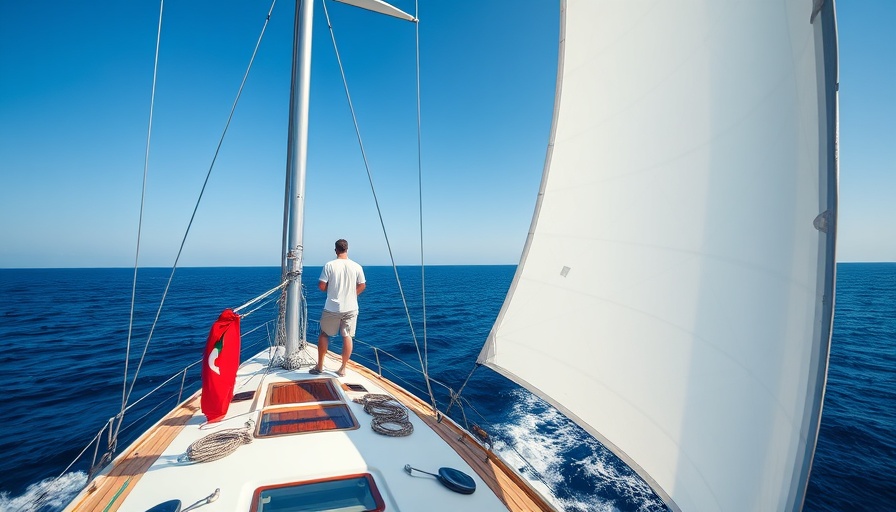
Thunberg's Bold Voyage: A Humanitarian Mission Diverted
In a move that has caught international attention, Israeli forces have intercepted the Madleen, a Gaza-bound aid boat carrying renowned climate activist Greta Thunberg and several other protestors. The boat, part of the Freedom Flotilla Coalition, was on a mission to deliver humanitarian aid to the beleaguered Gaza Strip when it was diverted to Israel early Monday morning. This incident underscores the tense geopolitical environment surrounding aid efforts in the region, particularly amid the ongoing conflict involving Hamas.
The Heart of the Matter: What Was the Mission?
The primary goal of the Madleen was to challenge the blockade Israel has maintained against Gaza. Activists on board, including members of the European Parliament and humanitarian volunteers, aimed to deliver essential supplies and draw global attention to the dire humanitarian situation in the Palestinian territory. Thunberg, known for her climate activism, was vocally opposing Israel's military operations while highlighting the impact on civilians within Gaza during this time of crisis.
Historical Context: A Blockade Amidst Conflict
The blockade on Gaza has persisted for years, tightening significantly during escalations in conflict, such as the ongoing war with Hamas. As humanitarian conditions deteriorate, many international aid organizations have been sounding alarms about potential famine conditions for Palestinians if conditions do not improve. Understanding the comprehensive implications of such blockades is crucial for grasping the complexity of humanitarian efforts in this region.
The Aftermath: Responses from the Activists
Upon being intercepted, the Freedom Flotilla Coalition released statements claiming that the activists were taken against their will. They highlighted how the humanitarian supplies would eventually be handed over to authorities for transfer to Gaza, though many remain skeptical about the practicality and reliability of those assurances. Footage circulated by the Israeli military depicted personnel distributing sandwiches and bottled water to the activists, attempting to frame the encounter as a cooperative gesture.
International Reactions: Mixed Responses to Capitalist Celebrity Activism
The presence of Thunberg drew mixed reactions globally. Supporters view her participation as a catalyst for raising awareness about humanitarian issues, while critics have labeled it as mere publicity seeking. The Israeli Foreign Ministry referred to the Madleen as the "selfie yacht" of celebrities, which polarized further discussions regarding the appropriateness of celebrity involvement in serious global issues.
Encounters on the High Seas: Previous Attempts to Reach Gaza
This is not the first attempt made by the Freedom Flotilla Coalition to reach Gaza. Just last month, another of their vessels faced a drone attack while sailing through international waters. The activists have consistently asserted that Israel operates aggressively to maintain the blockade at all costs, endangering not only their efforts to deliver aid but also the lives of Palestinian citizens caught in the middle of military interventions.
Future Implications for Humanitarian Aid
With the threat of famine alarmingly real, humanitarian organizations are urging nations worldwide to reconsider their stance on the blockade and engage in diplomatic discussions to ease these restrictions. The debate will likely persist, as activists continue to advocate for peace and humanitarian relief, while governments grapple with the implications of military actions and international relations.
Local vs. Global Perspectives: A Complex Narrative
The blockade and related humanitarian issues are a complex narrative of local grievances versus global politics. Eloquent pieces of evidence surrounding this incident can fuel debates internationally, engaging audiences in a discussion that extends beyond typical nationalistic perspectives.
What’s Next? The Future of Humanitarian Missions in Conflict Zones
The incident with the Madleen raises crucial questions about the future of humanitarian missions in conflict zones. With ongoing military operations in place, what strategies can ensure the safe delivery of essential aid to those in dire need? Activists warn that without a recalibration of political and humanitarian strategies, future missions will continue to face significant challenges.
In conclusion, as the situation evolves, it remains crucial to advocate for humanitarian efforts, while also acknowledging the complexities that come along with attempting to deliver aid in contested territories. Activism as a whole must transcend beyond sensationalism and into genuine efforts for constructive dialogue and actions.
 Add Row
Add Row  Add
Add 




 Add Row
Add Row  Add
Add 

Write A Comment